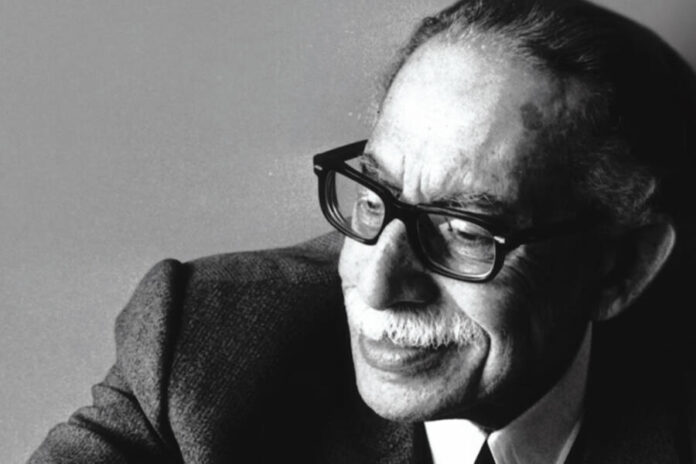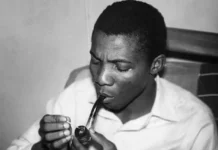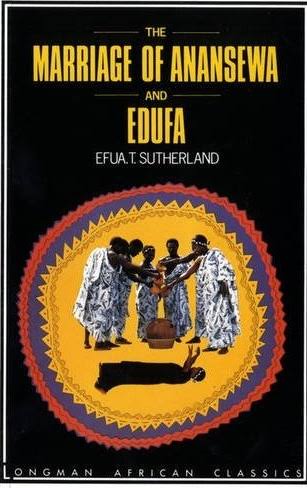🎥 We’re cooking something delicious for you on our YouTube channel. In the coming days, you will learn SSCE literature texts like you're in class 📚✍🏽
Be part of this new journey we are about to embark on.
🔔 Subscribe Now
Tawfiq al-Hakim (1898–1987), hailed as the father of modern Arabic drama, was an Egyptian playwright, novelist, and intellectual whose works reshaped Arab theatre.
His plays, such as The People of the Cave and The Fate of a Cockroach, are a combination of philosophy, allegory, and social critique, with thematic focus on identity, freedom, and cultural modernity.
Tawfiq al-Hakim was born in Alexandria. His innovative storytelling bridged Eastern and Western literary traditions. This earned him global recognition.
This blog post looks into his life, major works, and lasting influence in a way that offers students and readers a gateway to modern Arabic literature.

Early Life and Education
Tawfiq al-Hakim was born on October 9, 1898, in Alexandria, Egypt, to a middle-class family with a Turkish mother and an Egyptian father, a judge. He grew up in a culturally vibrant city under British colonial rule, where he was exposed to Arab, Ottoman, and European influences that shaped his worldview.
His early love for theatre emerged from attending performances in Cairo, where he was captivated by traditional Arabic storytelling and European plays.
After studying at Cairo’s prestigious Muhammad Ali School, he pursued law at Cairo University. He was also sent to Paris in 1925 to study law. It was here that he immersed himself in European theatre. He attended performances of Ibsen, Shaw, and Pirandello, which profoundly influenced his dramatic style. This exposure to Western existentialism and modernism, combined with his Islamic and Arab roots, fueled his ambition to create a distinctly Arabic theatre.
When he returned to Egypt in 1928, he worked as a prosecutor but soon devoted himself to writing, frustrated by colonial bureaucracy.
His early life, marked by cultural duality and intellectual curiosity, laid the foundation for his innovative contributions to Arabic literature.
Major Works of Tawfiq al-Hakim
Tawfiq al-Hakim’s prolific career includes over 70 plays, novels, and essays, with his dramas earning him enduring fame. Let’s take a look at a few of them.
Awdat al-Ruh (The Return of the Spirit, 1933) is a novel that celebrates Egypt’s cultural and spiritual awakening. It draws parallels to Pharaonic resilience. Hailed as a nationalist masterpiece, it inspired readers during Egypt’s anti-colonial movement.
Ahl al-Kahf (The People of the Cave, 1933) is his first major play. It reimagines a Qur’anic story of sleepers awakening centuries later. Its thematic focus includes time, faith, and human purpose. Premiering in Cairo, it marked a turning point for Arabic drama, though critics noted its philosophical density challenged audiences.
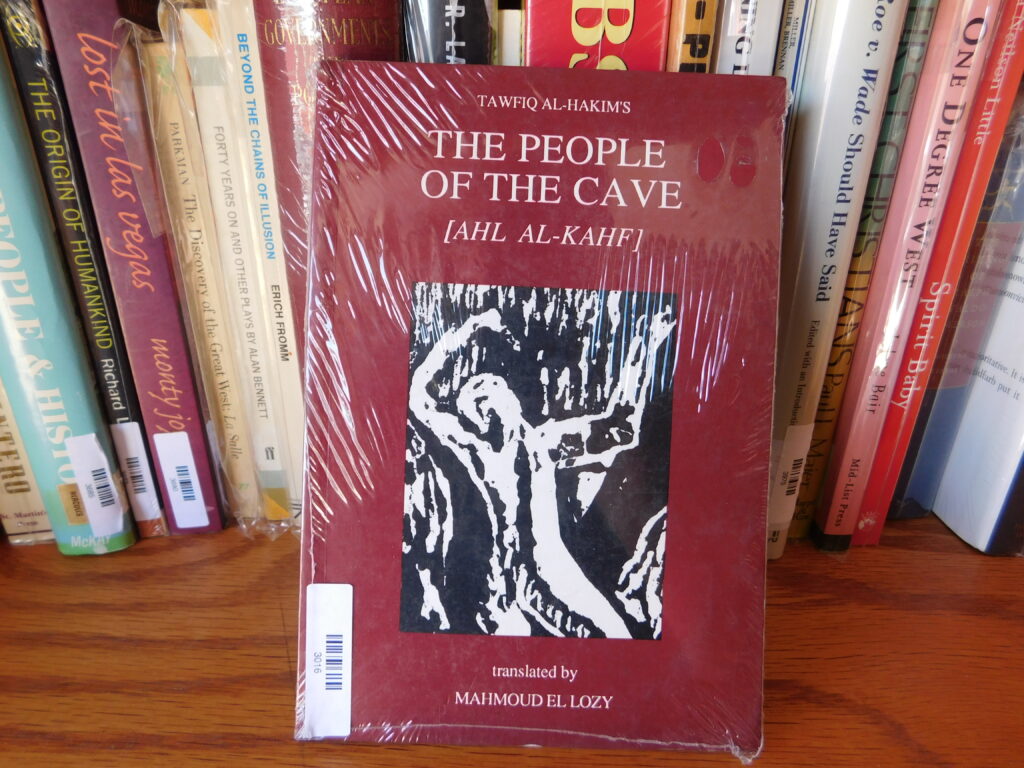
Shahrazad (1934) reinterprets the Arabian Nights, using allegory to probe love, power, and existential questions. It draws comparisons to Pirandello’s metaphysical dramas.
The Tree Climber (1962) ventures into absurdist territory, with a couple confronting surreal events. It reflects Beckett’s influence.
The Fate of a Cockroach (1966) is a satirical allegory that critiques authoritarianism through a cockroach king’s futile leadership. The play resonates with global audiences for its universal themes.
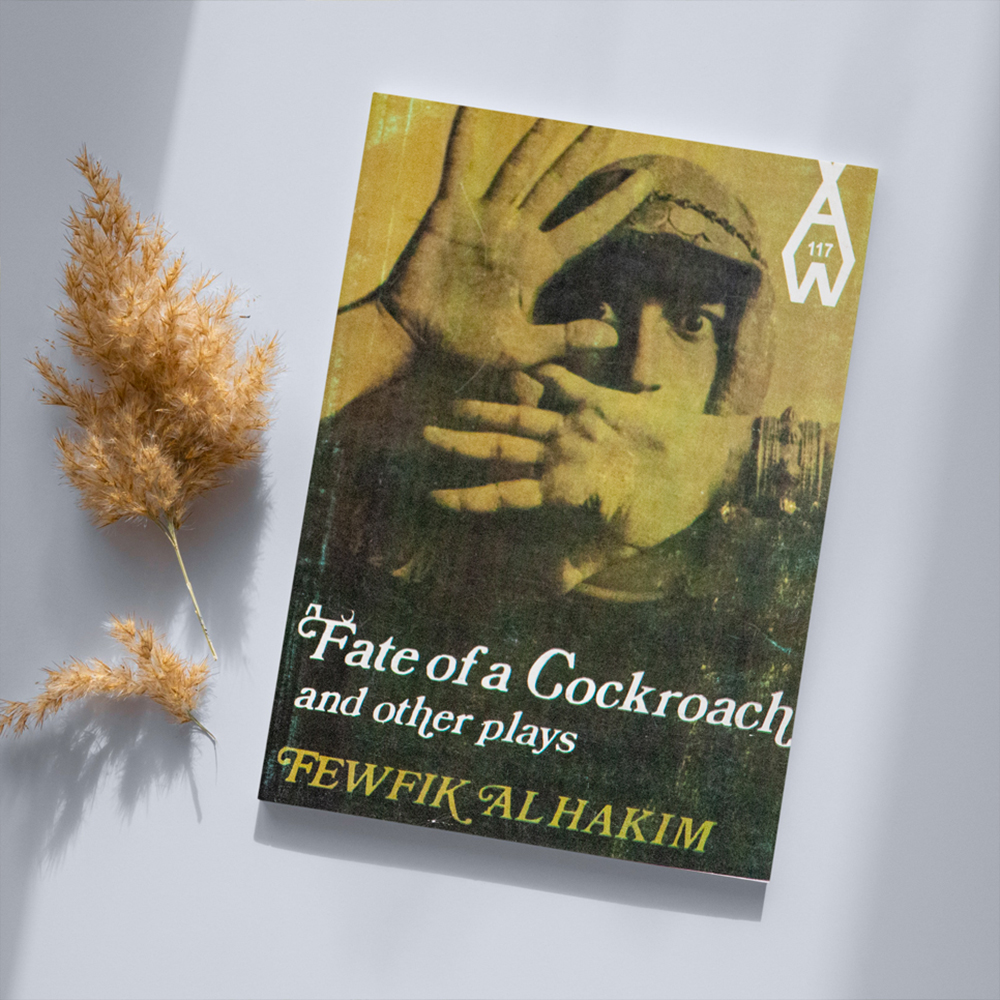
His later works, like The Sultan’s Dilemma (1960), explore justice and governance. These plays, put together, cement his reputation as a versatile dramatist.
Themes in al-Hakim’s Writings
Tawfiq al-Hakim’s works grapple with themes that resonate across Arab and global contexts. In his works, there are themes such as modernity versus tradition, intellectual freedom, religion and politics, identity, and the Arab cultural awakening.
Modernity vs. tradition is central, as seen in Awdat al-Ruh, where Egypt’s ancient heritage clashes with colonial influences, urging a synthesis of old and new. al-Hakim grounds his cultural critique in Egypt’s Pharaonic and Islamic roots.
Intellectual freedom permeates plays like Shahrazad, where characters question societal norms in the same way as Ibsen’s emphasis on individual agency in A Doll’s House.
Religion and politics intertwine in The People of the Cave, which uses a Qur’anic narrative to explore faith’s role in a modernising world.
Identity and the Arab cultural awakening are evident in The Sultan’s Dilemma, which critiques leadership while celebrating Arab heritage. This parallels Ngũgĩ wa Thiong’o’s call for cultural reclamation. Al-Hakim’s line in The Fate of a Cockroach (“The throne is the disease of the world”) captures his sharp political satire.
These themes make his work a rich study for students exploring cultural and existential questions in Arab literature.
Writing Style and Dramatic Techniques
Al-Hakim’s style blends philosophical depth, allegory, and experimental drama. This distinguishes him as a pioneer of Arabic theatre. His early plays, like Ahl al-Kahf, use symbolism and allegory, with characters representing broader human struggles, akin to Pirandello’s metaphysical explorations in Six Characters in Search of an Author.
His later works, such as The Tree Climber and The Fate of a Cockroach, embrace Theatre of the Absurd, employing surreal plots and sparse dialogue to highlight existential futility, drawing parallels to Beckett’s Waiting for Godot. Unlike Soyinka’s lyrical density, al-Hakim’s dialogue is concise yet layered, as in The Sultan’s Dilemma: “Power is a heavy burden, not a crown.”
His philosophical theatre prioritises ideas over action. It often challenges audiences accustomed to plot-driven drama, a critique noted by scholar Rasheed El-Enany.
Al-Hakim’s use of Arabic vernacular alongside classical Arabic enriched his plays’ accessibility, bridging elite and popular audiences.
His innovative stage directions and focus on intellectual conflict set a new standard for Arab dramatists, influencing figures like Yusuf Idris.
Critical Reception and Influence
Tawfiq al-Hakim’s work transformed Arabic theatre, earning him the title “Father of Modern Arabic Drama.”
Ahl al-Kahf was initially criticised for its dense philosophy but later praised for its originality, with scholar M.M. Badawi calling it “a milestone in Arab literary history.”
The Fate of a Cockroach gained international acclaim, with performances in Europe and comparisons to Ibsen for its social critique, as noted in Al-Ahram reviews.
Globally, al-Hakim’s plays were translated into English, French, and German, with The Tree Climber staged in Paris in the 1960s. Scholars like Ferial Ghazoul highlight his role in bridging Arab and Western literary traditions.
His essays, such as The Art of Literature (1952), shaped Arab literary criticism, while his mentorship of dramatists like Idris extended his influence.
Despite some critiques of his elitist tone, al-Hakim’s work remains a cornerstone of Arabic and world theatre.
Legacy and Relevance Today
Tawfiq al-Hakim’s legacy as a pioneer of modern Arabic drama endures through his innovative blend of Arab heritage and global theatrical forms. His establishment of a distinctly Arabic dramatic tradition inspired later dramatists like Yusuf Idris and Saadallah Wannous, much as Soyinka influenced Nigerian theatre.
His exploration of identity and freedom resonates in today’s Arab world, where debates on modernity and tradition persist. Plays like The Fate of a Cockroach remain relevant for their critique of authoritarianism, applicable to global political contexts.
For students, al-Hakim’s works offer a lens into Arab cultural history. Al-Hakim’s vision of theatre as a space for intellectual and social awakening continues to inspire many across the world.
Why Study Tawfiq al-Hakim?
Tawfiq al-Hakim’s plays and novels are a vibrant exploration of Arab identity, freedom, and the clash between tradition and modernity. His pioneering work in The People of the Cave and The Fate of a Cockroach reshaped Arabic theatre. His works provide profound insights into cultural and existential questions.
FAQ: Understanding Tawfiq al-Hakim
Who is Tawfiq al-Hakim?
Tawfiq al-Hakim (1898–1987) was an Egyptian playwright and novelist, known as the father of modern Arabic drama. His works, like The People of the Cave and The Fate of a Cockroach, explore identity, freedom, and modernity. Influenced by European theatre, he reshaped Arab drama with philosophical and allegorical narratives.
What are Tawfiq al-Hakim’s most famous works?
Al-Hakim’s key works include Awdat al-Ruh (1933), Ahl al-Kahf (1933), Shahrazad (1934), The Tree Climber (1962), and The Fate of a Cockroach (1966). These plays and novels earned him global acclaim.
What themes dominate Tawfiq al-Hakim’s plays?
Al-Hakim’s works explore modernity vs. tradition, intellectual freedom, religion, politics, and Arab identity. The People of the Cave probes faith and time, while The Fate of a Cockroach satirises authoritarianism. His focus on cultural awakening aligns with broader Arab literary movements.
Why is Tawfiq al-Hakim considered the father of modern Arabic drama?
Al-Hakim revolutionised Arabic theatre by introducing philosophical and allegorical drama. Works like Ahl al-Kahf established a modern dramatic tradition.
How did European theatre influence Tawfiq al-Hakim’s style?
Al-Hakim’s studies in Paris exposed him to Ibsen, Pirandello, and the Theatre of the Absurd, shaping his philosophical and experimental style. The Tree Climber reflects Beckett’s absurdism, while Shahrazad echoes Pirandello’s metaphysical themes, both adapted to Arab cultural contexts.
Sources:
- Badawi, M.M., Modern Arabic Drama in Egypt (1987)
- El-Enany, Rasheed, Arab Representations of the Occident (2006)
- Ghazoul, Ferial, Nocturnal Poetics: The Arabian Nights in Comparative Context (1996)
Receive Literary Updates through our Social Media Channels:
- WhatsApp: Literature PADI
- Telegram: Literature PADI
- YouTube: @literaturepadi
- Facebook: Literature PADI

